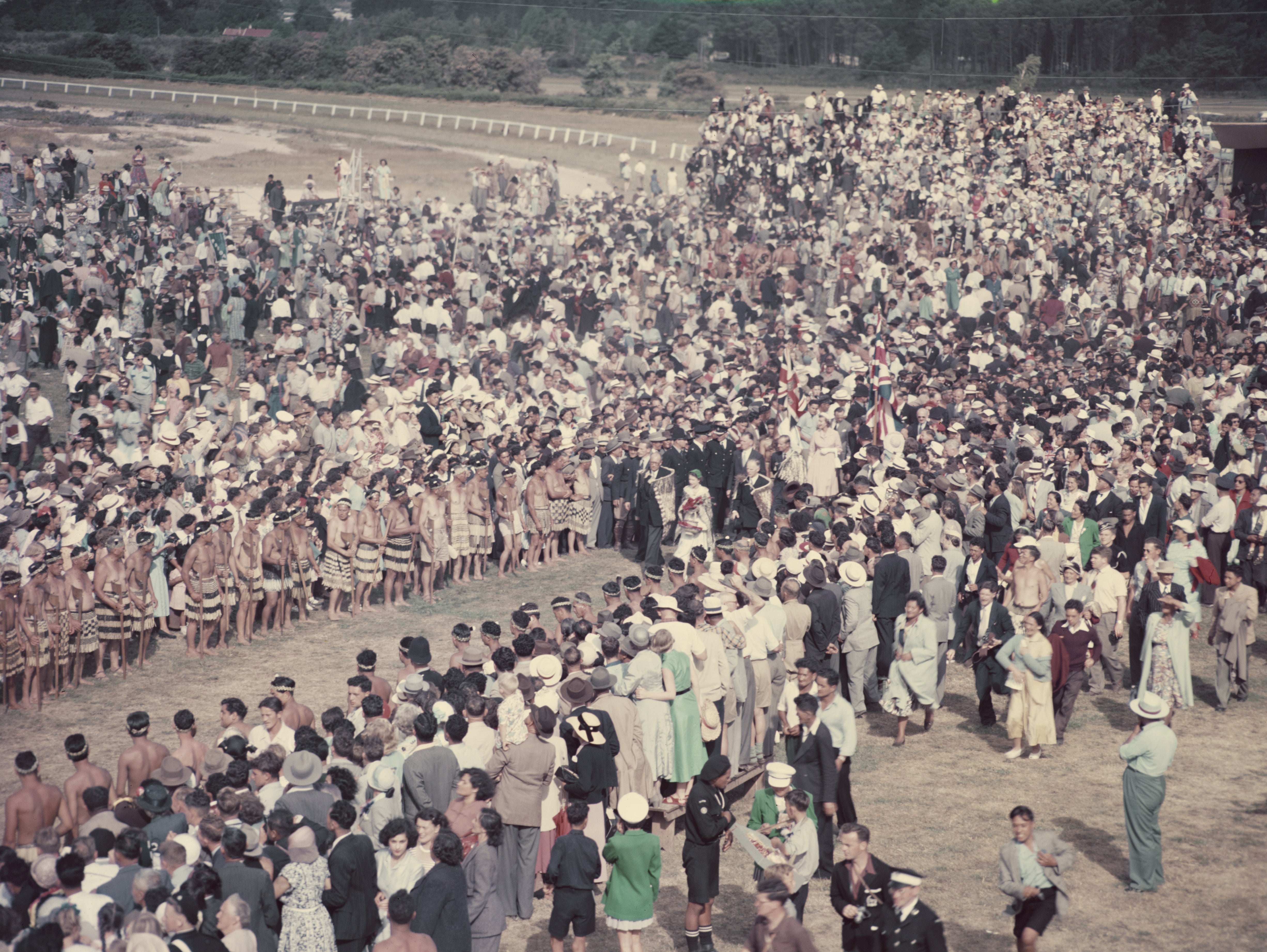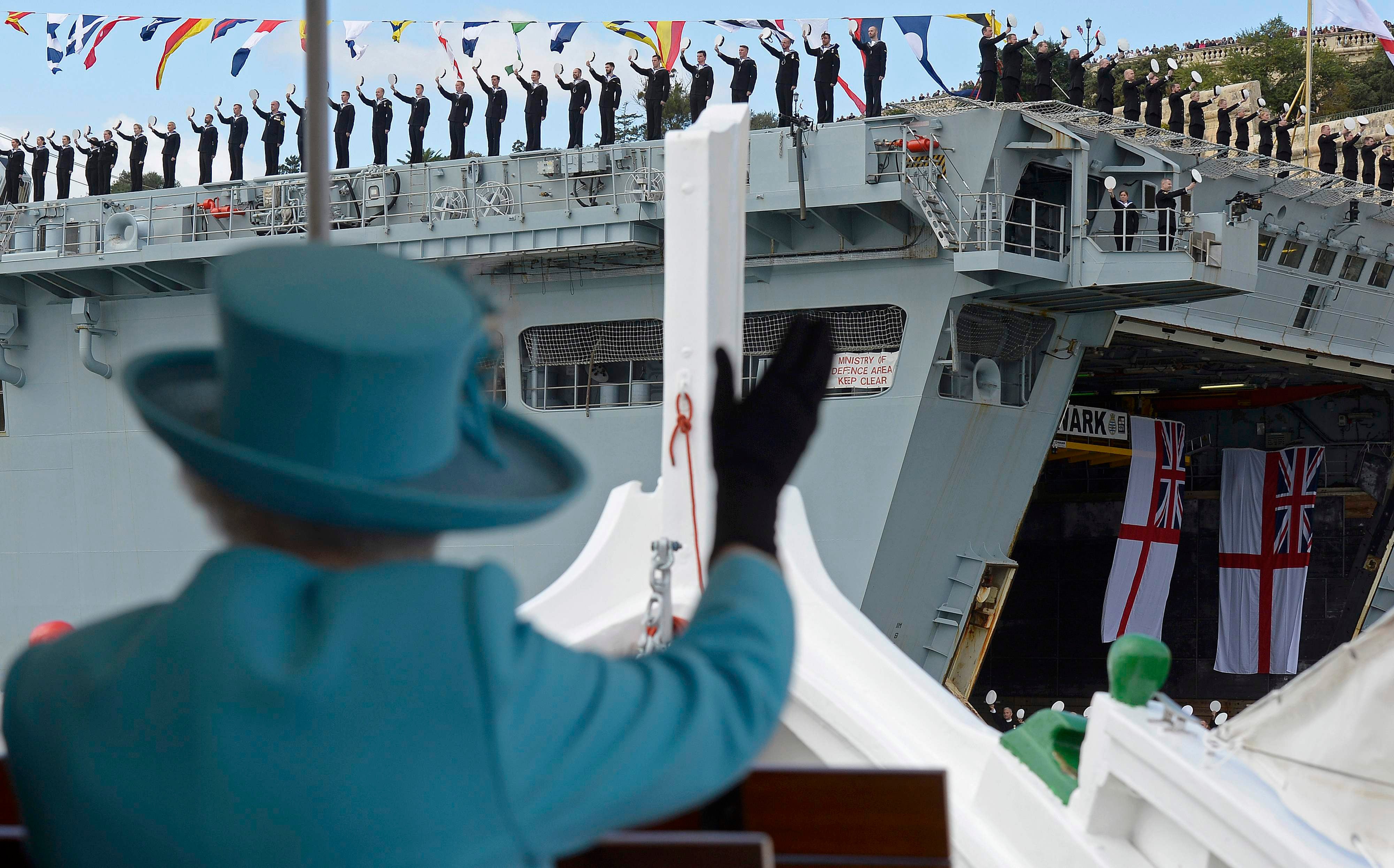The million-mile monarch: How Elizabeth II became ‘The’ Queen to the world as Britain’s power waned
Bel Trew explores the global legacy of a reign lasting 70 years summarised by France’s President Emmanuel Macron: ‘to you, she was your Queen. To us, she was The Queen’


She was known as the “million-mile monarch”, having visited nearly 120 countries as part of her 70 years of service. The combined travel distance is equivalent to two trips to the moon and back.
Despite royal controversies, despite resistance to and criticism of the British monarchy, the rise of anti-colonialist movements and the demise of the empire, the Queen managed to maintain her position as the most recognisable ruler in modern history. Whether monarchist or republican, no one can deny that she has had an immense impact internationally.
That was only highlighted by the massive global response and outpouring of grief over the news of her passing on Thursday. President Emmanuel Macron of France summed it up succinctly by saying: “To you, she was your Queen. To us she was ‘The’ Queen”. Brazil’s government even declared three days of official mourning in her honour.
Elizabeth II carved out a unique role as a modern international monarch and retained steady admiration abroad, her rule was simultaneously marked by diminishing British influence on the world, by the global backlash against notions of colonialism, by the collapse and exposure of the so-called British empire. When she came to the throne following the death of her father in 1952, the UK possessed more than 70 overseas territories.
At her death, the Queen was sovereign of 14 Commonwealth realms in addition to the UK – most of them sparse islands with a combined population amounting to no more than 300,000 people.
But yet, to quote President Macron again, she remained The Queen. For 70 years, she savvily navigated a tricky and tumultuous path for the monarchy. She carefully rebranded and in doing so maintained a place on the world stage.
No matter where she was, she could always draw a crowd, her former press secretary Dickie Arbiter says. “She got a good reception wherever she went. People turned up, perhaps not republicans but the majority did. They wanted to see the Queen,” he recalls.
That was the case even after the 1999 Australian republic referendum where the country had only narrowly voted in favour of retaining the monarchy. The streets were still lined with people.
“She was unique globally. She was a catalyst in bringing people together. I think it is because of who she was, what she represented,” Arbiter says. “The fact she has been around for such a long time. She was a constant presence for most people’s lives. There is a healthy respect.”
She was unique globally. She was a catalyst in bringing people together
This was echoed in comments by former political leaders as they reflected on her life and legacy in the wake of the announcement of her death. Kevin Rudd, Australia’s former prime minister, told the BBC World Service that he and his mother saw her as a “person of formidable unifying strength”.
John Major, meanwhile, said that she was extraordinarily and unusually well briefed on foreign affairs which had a huge impact.
All agreed that because of this she crucially saw the changing times. As Arbiter puts it, during that important trip to Australia she was careful to say in her arrival speech that the issue of a republic was something that the Australian people and “they alone should decide upon”.
Queen Elizabeth II came to power in a different world. On her 21st birthday while in South Africa, five years before she would become monarch, she famously declared that she would devote “her life to the service of our great imperial family to which we all belong”.
By the time she became Queen – while holidaying in Kenya (a country which would go on to declare independence 11 years afterwards) – she had recognised times had changed.

Those that knew and worked with her said she saw and acknowledged the independence movement rolling across the African continent. She understood the growing need for a different kind of relationship with her beloved Commonwealth and for a new kind of monarchy, one that didn’t follow in the footsteps of her great-great-grandmother Queen Victoria, who famously never strayed any further than Europe.
Take the coronation. It was the first to be broadcast on television, which meant reaching a global audience. It is no coincidence, then, that on ascending the throne, one of her first moves was an extensive state tour of the Commonwealth.
While in New Zealand she famously invented what has now been dubbed “the walkabout”. It was the simple act of getting out of the car and meeting and greeting people in person. But it sparked countless photo opportunities, became a literal crowd-pleaser, and set the standard for monarchs across the world.
It was also not a coincidence that early on in her reign she travelled to Ghana, a former colony. There she was famously photographed dancing with Kwame Nkrumah, Ghana’s first president post-independence.

In the 1980s, she bumped heads with her then prime minister Margaret Thatcher over the PM’s refusal to back stronger sanctions on apartheid South Africa following the Commonwealth heads of government summit.
“The Queen was known to be sympathetic to the African cause, not to any specific strategy or action,” Sir Sonny Ramphal, the Guyanese Commonwealth secretary-general would later recall to the BBC World Service.
“But in a general sense, she understood the time had come for the ways in South Africa to change.”
“She grew as an internationalist … she would have understood their aspirations for freedom.”
And all along the way, she “smoothed the path” for British diplomacy and, crucially, business, says Arbiter, who accompanied her on three state visits as a member of the press. He recalls one royal trip to China where a delegation of British businessmen joined and was able to finally agree on a number of stalled contracts.
“They signed millions of pounds worth of deals off the back of the state visit,” he says. “Her loss will have a tremendous impact on the UK, her visits brought in business, created jobs and boosted the economy.”
While Elizabeth II was famously publicly quiet about her political beliefs (and emotions), she made statements in her actions, even late on in her career as she continued to travel despite her age.

In 2011 she made the first visit to Ireland by a British monarch in 100 years and laid a wreath at a memorial for those who died fighting the British for independence. As the Irish president Michael D Higgins said after her death, the Queen “did not shy away from the shadows of the past” during her trip where she “set out a new, forward-looking relationship between our nations”.
Her final trip abroad was in 2015 to Malta, when she was nearly 90 years old. After that she continued receiving foreign leaders in the UK, working right up until her final days.
Queen Elizabeth’s impact was immense but her passing will likely trigger a fresh push for change.
Republican figures such as Adam Bandt, leader of the Australian Greens party, were quick to express their condolences but also to call for change and for debates on the monarchy’s constitutional status.
Brandt’s deputy, New South Wales senator Mehreen Faruqi, was even more direct. She sent her condolences to “those who knew the Queen” but added: “I cannot mourn the leader of a racist empire built on stolen lives, land and wealth of colonised peoples.”
King Charles III will have to tread a different path from his mother in this rapidly changing world.
And he will have to live up to her legacy.






Join our commenting forum
Join thought-provoking conversations, follow other Independent readers and see their replies
Comments